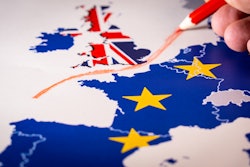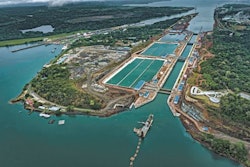
Brexit created a major global paradigm shift in many ways: It potentially destabilized the U.K. (resurgence of Scotland independence referendum worries), put the European Union (EU) at risk (potentially emboldened leave movements in other EU countries) and arguably slowed down globalization.
The world is paying close attention to Brexit for the following reasons:
- The U.K. is the fifth largest economy in the world and the second largest in the EU.
- One of the most globalized economies, it makes up 4 percent of the world gross domestic product (GDP).
- It is the ninth largest exporter ($503 billion in 2014) and the fifth largest importer ($802 billion).
- At 5 percent, the U.K.’s unemployment is at a six-year low.
- The pound sterling is the world’s third largest reserve currency and the fourth most valued.
- The U.K.’s manufacturing sector contributes £6.7 trillion to the global economy, making it the 11th largest manufacturing nation.
- Trading Economics ranks the U.K. at number six in 2015 on the Ease of Doing Business Index, ahead of most EU countries.
The U.K. has thousands of companies that make everything from chemicals, automobiles and electronic components to medicines and other products. As the U.K. exits the EU, it will have to implement new rules and regulations, and negotiate new treaties. It will have to implement new economic and fiscal policies. The U.K.’s economy is part of a complex web of nodes and flows, and a major shift in one of these is expected to impact the entire network in different ways over time.
What Can Companies Do to Manage an Ever-Changing and Highly Interconnected Global Landscape?
Every crisis or development opens up arbitrage opportunities. Companies that are well prepared can exploit them to their benefit. The speed with which a company can triangulate impact determines the benefit it can derive from a disruption. Information, therefore, is power. Extensive supply chain intelligence transforms risk into opportunities.
Gone are the days when supply chain experts knew their supply chain dependencies like the back of their hand. Today, if a company doesn’t map its supply chains, set up a process to dynamically refresh this ever-changing landscape and harness this information quickly, it is navigating blind. The good news for leaders is that there is a very simple test to establish how well-informed your supply chain organization is.
Take any recent global development, whether it is Brexit, or the coup in Turkey, or Typhoon Nepartak in Taiwan and China or a factory fire at a supplier. Ask your supply chain organization to answer the following questions:
- How long did it take to find out about the event? Minutes, hours, days, weeks?
- When did it have the full picture of who was in the region? Minutes, hours, days, weeks, months?
- When did it find out who was or was not impacted by the events or changes? Minutes, hours, days, weeks, months?
- How long before sub-tier supplier dependency information was available? Minutes, hours, days, weeks, months, never?
- How many unexpected problems, suppliers, sites, parts, sub-tiers were identified three weeks after the event? Less than one, less than 10, less than 20?
This simple toolkit should provide a good indication of how blind and resource-dependent your supply chain organization is. It should give leaders pause, if the time taken is weeks or months, because, by then, arbitrage opportunities are already gone, in which case you are at the mercy of these events rather than in a position of controlling the outcome.
Whether it is Brexit or Turkey or Taiwan, quickly knowing exactly how dependent your business is on these regions is critical. It includes knowing your operating locations in these regions; suppliers’ factories and logistics or storage locations; critical second-tier suppliers’ operations and how impactful they are to your operations. It means being able to know if a critical supplier that supports more than 5 percent of your revenue (not spend) may be in an impact region, within minutes.
Armed with this intelligence, supply chain experts can immediately identify risks before they manifest into supply chain problems and exploit opportunities to give themselves a competitive advantage.
Bindiya Vakil is the founder and CEO of Resilinc. For a more detailed analysis of supply chain implications of Brexit, please see this whitepaper.














